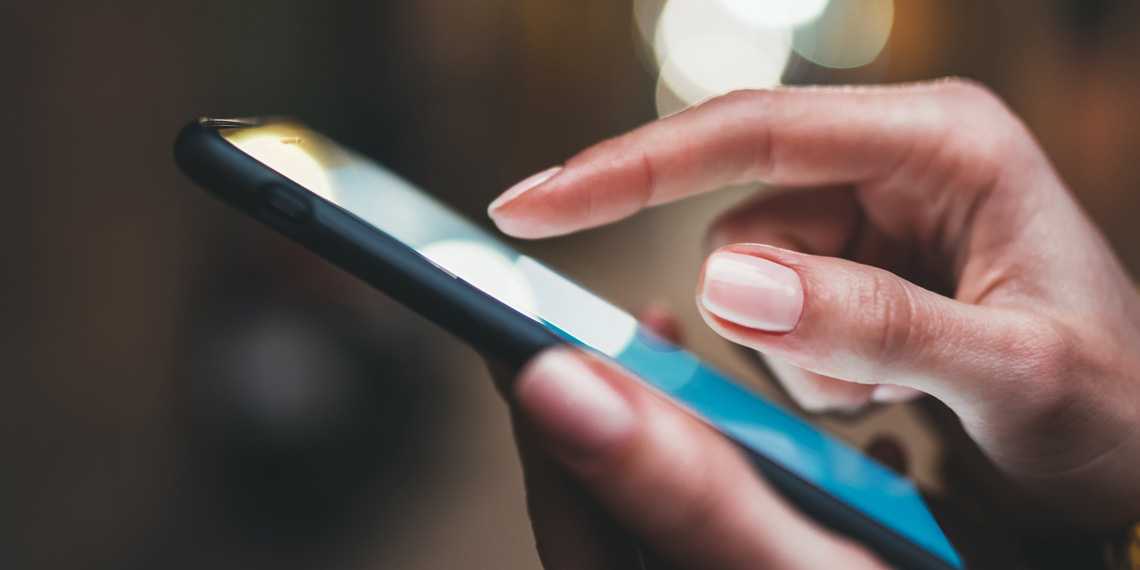Media
Social media dependency is linked to a reduced preference for freedom, study finds
|
|


Social media dependency is associated with a reduced preference for freedom, according to new research published in Psychological Reports. The study suggests that people who are heavily dependent on social media may use it as a way to escape from the uncertainties and challenges of the real world.
Social media dependency refers to a condition in which individuals develop a strong reliance on social media platforms, leading to excessive and compulsive use that negatively impacts various aspects of their lives. It involves an intense need for constant engagement with social media, difficulty in controlling usage, and experiencing negative consequences due to excessive social media use.
Previous studies had established connections between social media use and anxiety, mediated by factors like intolerance of uncertainty and experiential avoidance. Building upon this knowledge, the authors behind the new study sought to examine whether social media dependency influenced individuals’ preference for freedom and their tendency to avoid situations involving decision-making.
“Our research has suggested that many people use social media (and the web more generally) to calm themselves, increasingly people seem to be more anxious about ‘things in general,’ and so an escape from a situation over which they have little control anyway seemed a coping strategy that was highly likely,” said study author Phil Reed, a psychology professor at Swansea University and author of “Interventions for Autism: Evidence for Educational and Clinical Practice.”
“It also allowed us to unite a couple of areas in the field that don’t often get talked about together – learning and psychoanalysis.”
For their study, the researchers recruited 151 participants, including a mix of female, male, and non-binary individuals, with a mean age of 23.85 years. The majority of participants identified their ethnicity as white. To assess the level of daily social media use, the researchers obtained screenshots of the participants’ time spent on social media over the previous week.
Participants completed various questionnaires to measure social media addiction, trait anxiety, intolerance of uncertainty, and experiential avoidance. They also completed an experimental task derived from instrumental conditioning literature.
In the experimental task, participants were presented with two colored squares on a screen. One square was associated with a “forced” choice, and the other with a “free” choice. After making their choice, participants received a reward. They repeated this process for eight trials. By using this experimental paradigm, the researchers aimed to investigate how social media dependency and various aspects of anxiety related to behavioral choices between “free” and “forced” options.
The researchers found that participants with higher social media dependency had higher levels of anxiety and intolerance of uncertainty.
During the experimental task, the participants showed a general preference in favor of the option that gave them more freedom of choice. This finding supports previous research conducted with pigeons. But participants who were heavily dependent on social media did not show the same preference for freedom. They were less likely to prefer freedom compared to those with lower social media dependency. Additionally, individuals with high social media dependency made decisions more quickly, indicating a tendency towards impulsivity.
“I think what people could take from this is just a reminder to check in with themselves about why they are reaching for that mobile,” Reed told PsyPost. “Is it just an unthinking impulsive response, or do they really want to get online that way? Think about your reasons, and the triggers that make you do something, can be a start to getting them under control.”
The findings suggest that social media dependency is associated with reduced preference for freedom and increased anxiety and intolerance of uncertainty. It is possible that using social media serves as an escape from uncertain real-world situations. The study also supports the idea that social media dependency is related to impulsive behavior.
“When things go as we predicted, I’m always surprised – that’s the one thing you should never expect in science,” Reed said. “I think the fact that people react so quickly and impulsively by reaching for the mobile when they carry a level of stress and worry with them was the really surprising thing – it’s just such a fast, unthinking response.”
But the researchers said that further investigation is needed to better understand the relationship between social media dependency, anxiety, and decision-making processes.
“There are always caveats to any work – the main one being that we need to try to understand the differences between people – are there some groups that are particularly prone to this type of behaviour – perhaps related to experiences that they have had in the past? Are there differences depending on the main usages of the social media for people? However, the results are fairly solid across a wide group of participants.”
The study, “Social Media Use as an Impulsive ‘Escape From Freedom’“, was authored by Phil Reed and Will Haas.





Media
Lawmakers pan Ben Gvir for ‘unforgivable’ tweet on alleged Israeli strike on Iran – The Times of Israel


Italian FM says Israel gave US ‘last minute’ warning about drone attack on Iran
CAPRI, Italy (AP) — The United States told the Group of Seven foreign ministers that it received “last minute” information from Israel about a drone action in Iran early this morning, Italy’s foreign minister says.
Italian Foreign Minister Antonio Tajani, who chaired the meeting of ministers of industrialized countries, says the United States provided the information at session this morning that was changed at the last minute to address the suspected attack.
Tajani says the US informed the G7 ministers that it had been “informed at the last minute” by Israel about the drones. “But there was no sharing of the attack by the US. It was a mere information.”
Early Friday, Iran fired air defenses at a major air base and a nuclear site near the central city of Isfahan after spotting drones, part of an apparent Israeli attack in retaliation for Tehran’s unprecedented drone-and-missile assault on the country last weekend.
In a communique following the three-day meeting, the ministers urged the parties “to prevent further escalation.”
Media
DJT Stock Rises. Trump Media CEO Alleges Potential Market Manipulation. – Barron's
[unable to retrieve full-text content]
DJT Stock Rises. Trump Media CEO Alleges Potential Market Manipulation. Barron’s





Source link
Media
DJT Stock Rises. Trump Media CEO Alleges Potential Market Manipulation. – Barron's
[unable to retrieve full-text content]
DJT Stock Rises. Trump Media CEO Alleges Potential Market Manipulation. Barron’s





Source link
-
Media6 hours ago
DJT Stock Rises. Trump Media CEO Alleges Potential Market Manipulation. – Barron's
-
Media8 hours ago
Trump Media alerts Nasdaq to potential market manipulation from 'naked' short selling of DJT stock – CNBC
-
Art24 hours ago
Collection of First Nations art stolen from Gordon Head home – Times Colonist
-
Investment7 hours ago
Private equity gears up for potential National Football League investments – Financial Times
-



 Health21 hours ago
Health21 hours agoType 2 diabetes is not one-size-fits-all: Subtypes affect complications and treatment options – The Conversation
-
Media20 hours ago
DJT Stock Jumps. The Truth Social Owner Is Showing Stockholders How to Block Short Sellers. – Barron's
-
Art24 hours ago
Crafting the Painterly Art Style in Eternal Strands – IGN First – IGN
-



 Sports22 hours ago
Sports22 hours agoHow the NHL moved the Arizona Coyotes to Salt Lake City – Sportsnet.ca



